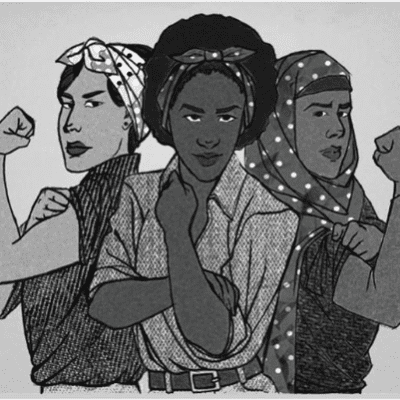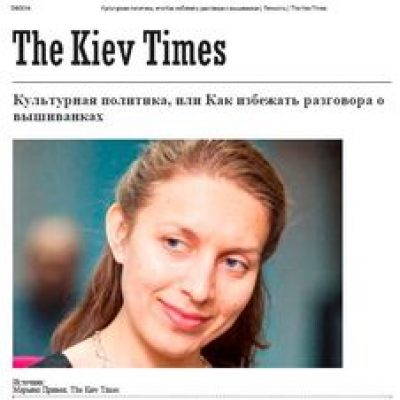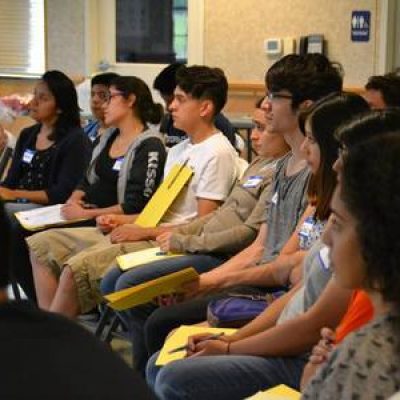Article
Political science remains a field overepresented by white cis-het men, and, as editor-in-chief of the International Public Policy Review (IPPR), Senior Fellow Detmer Kremer sought to relaunch the journal as an intentional platform to foster diverse academic and journalistic voices to write about issues they cared about, while providing an intentional and kind feedback process.
The creation of knowledge has always seemed to be an exclusive and obscure process to Detmer. As a first generation college student, he did not understand how people gained access to spaces like journals. When he realized there was an opportunity to take over a student-run journal, he thought it was the perfect chance to challenge the process at the beginning of people’s scholarly careers. “Storytelling is important, and academic writing is just another story, however, in many spaces we are punished through low grades and rejection, rather than assisted in elevating our stories and making them more effective. We need to hear more voices, but traditional editorial processes disproportionately exclude those already marginalized.”
“We need to hear more voices, but traditional editorial processes disproportionately exclude those already marginalized.”
Detmer first applied to become the editor-in-chief to take over the journal and ensure continuity of a pre-existing institution. He then set up different teams for different media outlets while maintaining a flat and open working structure so they could begin publishing. He was able to secure funding for the academic journal’s website and design through the University College London’s School of Public Policy.
Detmer prioritized the well-being of the team, because as a human rights student, the health of the team was paramount.
He knew the journal had to reflect the diversity of the cohort, both in its writers and creators, such as editors and designers. He conducted active outreach to recruit voices historically absent from such processes and launched a multimedia approach to widen the audience and make content more accessible. Detmer prioritized the well-being of the team, because as a human rights student, the health of the team was paramount. For him, this was also a personal stand against the toxic burn-out culture of the human rights field, which paradoxically seems to fight for a better world for all except in its own offices.
To achieve these goals, Detmer flattened the hierarchy and made sure that everyone on the team felt heard and respected. He ensured there was enough space for team members to step back, especially because everyone was a student. He also facilitated training with faculty members to demystify the journal process, and instituted “blind” selection processes to ensure unconscious biases would not cloud staff judgment.
Throughout the year, he also mentored a young woman of color in leading meetings and editorial practices. She was later designed to be the undergrad editor-in-chief, and was thrilled to take over the journal for next year. Detmer was touched when she thanked him for showing and teaching her a different, less oppressive way of running a community, while maintaining productivity.
“It is important to make space for the humanity of everyone in your group and be flexible in your goals and approaches to ensure you don’t risk anyone’s well being.”
When asked what advice he has for others implementing action projects, Detmer says “It is important to make space for the humanity of everyone in your group and be flexible in your goals and approaches to ensure you don’t risk anyone’s well being.” One of his deputy editors had a difficult time and felt that they couldn’t talk about it for fear of judgment and anger. However, Detmer made it clear that their well-being will always take priority, and if this means a delay in an issue or a restructuring of a project, it is worth it.
The global reach of the journal, with over 1000 readers from over 50 countries in the span of a month, felt incredible for the volunteer, student-run publication.
When asked about the most rewarding part of the project, Detmer replied that it was “seeing the joy of my editorial team when we finished the product.” He shared that the final design was streamlined and modern, with a diverse range of topics. The entire team felt ownership of that issue because all of their voices were there. The global reach of the journal, with over 1000 readers from over 50 countries in the span of a month, felt incredible for the volunteer, student-run publication.
The next step is ensuring a smooth transition for next year’s team so the journal can expand and grow ever more inclusive, innovative, and critical. “I hope it will continue to grow and amplify the voices of young writers and editors questioning why our world is the way it is, and bringing new ways of being into existence by taking that first step of imagining how things could be differently,” Detmer explained.




